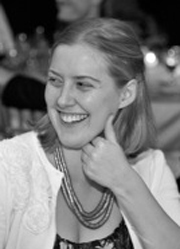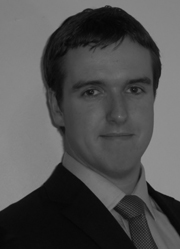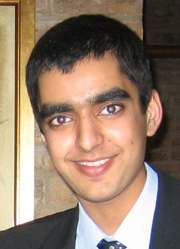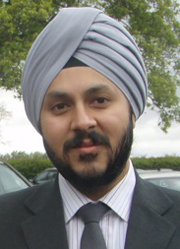 Lauren Curtis
Lauren Curtis
Why a Harvard PhD?
My Harvard PhD has really changed me as a scholar. I came to Harvard planning to work on one topic, but the first two years of course requirements, designed to give you a broad base of knowledge in your field, introduced me to a new area of study that led to a totally different—and much more exciting—dissertation topic. Teaching Harvard undergraduates, which was another requirement of my PhD program, also made me realize how much I want teaching to be part of my career, and how it can go hand-in-hand with research. In general, my experience has been that a structured PhD program, such as those offered at Harvard in contrast to most British universities, encourages academic growth in ways that can be very unexpected and absolutely invaluable.
What did an anthropologist gain from a year as a Special Student?
I applied to be a Frank Knox Fellow with a strong idea of what I hoped to focus on for subsequent doctoral research, but grateful for the opportunity to take classes in many of the disciplines I had been flirting with during undergraduate Social Anthropology. In the Fall, I focussed on animal social behaviour, psychology and scientific methodology while, in the Spring, I was able to pursue classes in African history, politics and Human Rights. I gained a new perspective from opportunities provided by the Kennedy School to discuss global issues with the very people who shape law and policy, and I also gained a tremendous amount from a two-part class I enrolled on at the School of Public Health: Humanitarianism in the Field. It consisted of an intensive three-week course of lectures on everything from the Geneva Convention to Sphere Standards, as well as three days in a New England forest, in which we took part in the simulation of a humanitarian crisis on the Chad-Sudan border. One of the most inspirational things I did while at Harvard was working for the Harvard Humanitarian Initiative as a research assistant. I was also able to take classes in anthropology and philosophy, and the excellent language tuition enabled me to study Arabic and Swahili.
Lys Alcayna-Stevens
What did I take from the MPP at the Kennedy School?
In my view, there are three things that make the MPP at the Kennedy School a superb programme. First, and most obviously, I was taught by excellent professors in a number of subjects, ranging from economics and statistics in the first year to my specialised field of interest (international relations) in the second year. Second, students' access to these professors outside their class hours is good, and it is easy to approach very distinguished figures in their field and have a one-to-one conversation. Many professors are former members of US administrations, and during my MPP in 2008, a number of professors moved on to the new Obama administration - this gives you an impression of the calibre of the people teaching.
Third, and to my mind most importantly, the calibre of the professors is surpassed only by the calibre of the other students. My closest friends included former political aides, the chief of staff to a mayor of a major US city, former and serving military officers, teachers, aid workers and plenty else besides. Their ages ranged from 21 - mid 50s. The experiences they brought to the course were worth the admission fee alone, and the connections I built with them will last a lifetime.
|
|
|
 Philip Young Philip Young
How broad was the range of the LLM?
Being a Knox Fellow on the LL.M program enables a flexible approach to course choices without a psychological compulsion to spend all one’s time in pure law subjects. The ideals of a Knox Fellowship promote collaborative and cross-discipline interaction which reaches beyond specific degree boundaries. Consequently and perhaps ironically, a Knox Fellow on the LL.M program should seek to cross-register into complementary subjects at Harvard Business School and The Kennedy School of Government. Arguably, all subjects studied at the Law School should be in areas where the Knox Fellow has no prior experience. Such diversity of experience and plurality in learning not only meets the requirements of an LL.M degree but realizes the uniqueness of a Knox Fellowship.
|
|
 Adam Ali Adam Ali
What did a medic gain from a year as a Special Student?
All through my year as a Knox Fellow (taken after my intercalated BSc )I studied healthcare economics and political strategy as a 'special student' at GSAS, taking several of my courses at the School of Public Health and the Kennedy School of Government. The opportunity to see the cutting-edge of global health and US policy reform was one I will never forget, with my lecturers ranging from leading authorities in the World Health Organisation to Obama's senior health policy advisors. Together with the astonishing variety of students from around the world - all with different experiences but the same enthusiasm for the subject - this made for an incredible learning experience. Outside of classes I enjoyed debating at weekly tournaments with the Harvard University Speech and Parliamentary Debate Team and was heavily involved in the 2008 ‘Obama for America’ Campaign, travelling around the US to canvass in the run up to the elections. I represented GSAS at Ultimate Frisbee and Volleyball and performed with the University juggling troupe at several shows. I had never studied economics or policy before going to Harvard, but the phenomenal range of courses available and enthusiastic atmosphere meant I was able to learn very quickly, and by the end of my time there I had achieved several publications in internationally renowned journals, came away with a passion for global health and forged a lifelong network of friends around the world.
|
|
 Dr Manpreet Singh Dr Manpreet Singh
What did the Masters in Public Health encompass?
Global Health is no longer in the exclusive purview of medicine, or even public health. It's a discipline dominated by economics, by business, by politics. During my MPH at Harvard I was taught health economics by people advising Obamacare. I learnt about global politics at the Kennedy School of Government. I had profound disagreements with profit-driven global health practitioners at the Harvard Business School. The Knox Fellowship allowed me to escape my bubble, and to see global health from different professional perspectives.
|
|
|
|
|